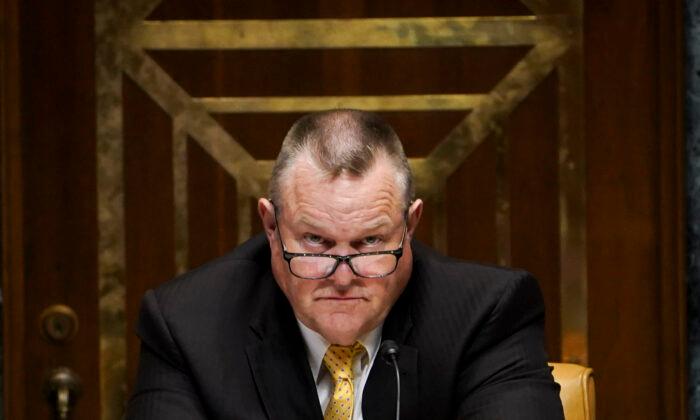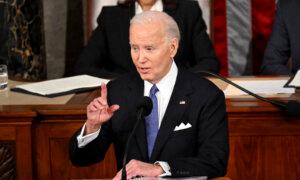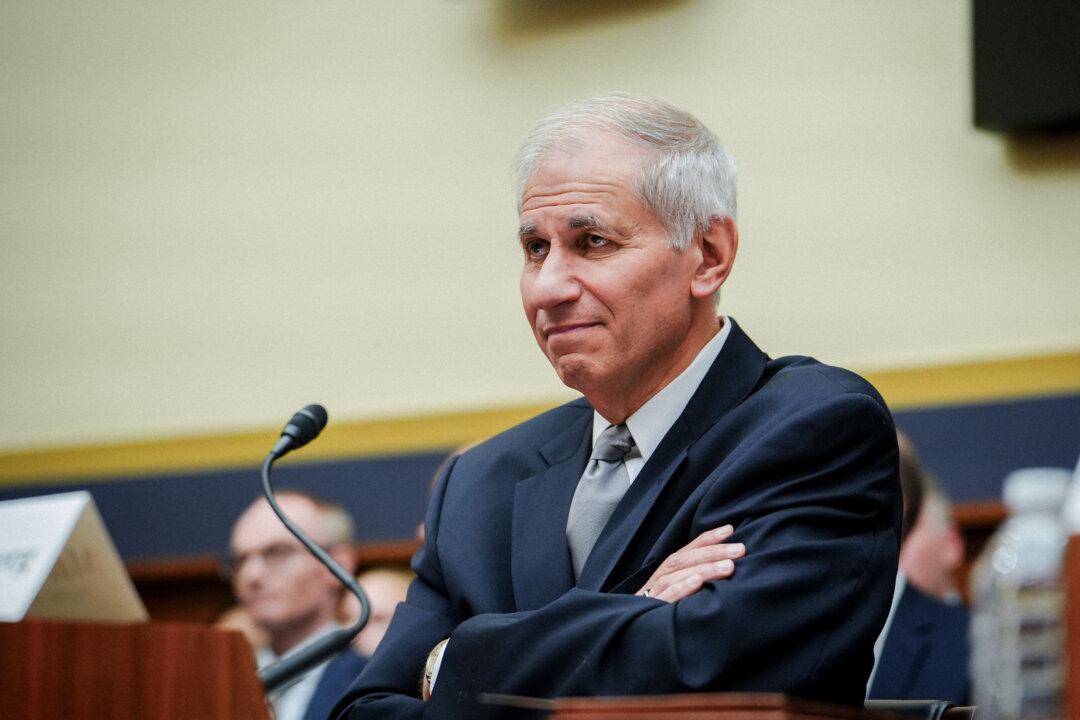As the national debt eyes $35 trillion and the budget deficit inches toward $1.5 trillion this fiscal year, Sen. Jon Tester (D-Mont.) plans to reintroduce his constitutional amendment mandating balanced budgets.
Mr. Tester, who is up for reelection this year, said he wants to require presidents and Congress to present balanced budgets to the American people. He says this would lower costs and rein in unnecessary government spending.
“At a time when Montanans are struggling with rising costs on everything from housing to groceries, the President and Congress must do more to [rein] in unnecessary government spending and act as responsible stewards for our economy,” he said.
The current national debt is “unacceptable and unsustainable,” Mr. Tester said, and Washington should not “pass an unpayable bill onto our kids and grandkids.”
Over the past year, lawmakers in both chambers have submitted legislation to insert a balanced budget amendment to the constitution.
In December, Rep. Rudy Yakym (R-Ind.) proposed tying limits on the national debt to a percentage of the gross domestic product (GDP) except in times of military conflicts. His amendment would require that the national debt not exceed 130 percent of GDP in the first year the amendment is in effect. The limit would decrease in each following fiscal year until it hit 120 percent.
Sens. Mike Lee (R-Utah) and Chuck Grassley (R-Iowa) introduced a balanced budget amendment in February 2023. The measure would force Congress to balance the budget every year, limit federal spending to no more than 18 percent of GDP, and require a supermajority vote in the House and Senate before increasing the nation’s debt ceiling or raising taxes.
“We cannot rely on self-imposed, statutory spending limits that Congress can waive with a simple majority,” Mr. Lee said. “It is the only solution that guarantees the enforcement of future reforms.”
As of May 6, the national debt stands at $34.56 trillion, according to Treasury data.

The Congressional Budget Office (CBO), a nonpartisan budget watchdog, forecasts that the national debt will exceed $50 trillion by 2034, fueled by $20 trillion in cumulative deficits.
White House Stance on Balanced Budgets
As more public policymakers start paying attention to the country’s fiscal situation, there has been debate surrounding a balanced budget amendment.White House officials have largely dismissed the concept.
Shalanda Young, director of the Office of Management and Budget, expressed concern that this idea would affect essential public safety nets, such as Social Security and Medicare.
“But we think nominal numbers tell one story; the more complex story is looking at a lot of these things as a share of GDP,” Ms. Young said at a March Senate Budget Committee hearing.
Despite widespread fiscal sustainability concerns, Treasury Secretary Janet Yellen said she does not believe it is necessary to address budget imbalances to ensure the nation’s books are on a proper financial path.
Debate Over Policy Initiative
Proponents of this policy endeavor say that it is merely one step in controlling the federal government’s debt and deficits. Although it would help concentrate on the bottom line, the amendment “cannot resolve these underlying policy differences,” according to the Peter G. Peterson Foundation.Critics have said there are too many drawbacks to imposing this standard.
According to Richard Kogan, a senior fellow at the Center on Budget and Policy Priorities, a balanced budget amendment would hurt the economy.
“By requiring a balanced budget every year, no matter the state of the economy, the balanced budget amendment (BBA) proposal would risk tipping a weak economy into recession and making recessions more frequent, longer, and deeper, causing very large job losses and hurting long-term growth,” he wrote in April 2018.
In addition to this idea, a chorus of conservatives has advocated the so-called penny plan, though there have been different variations, including the Six Penny Plan of Sen. Rand Paul (R-Ky.).
This initiative would cut between one and six cents for every dollar of spending. Mr. Paul has said his six-cent policy pursuit would balance the federal budget in five years.
The National Taxpayers Union Foundation stated that this would be a “smart, incremental” step toward fiscal responsibility.
“Some in Washington act as though massive deficits are the new normal, but this normal is not sustainable. Annual deficits this large will fuel rising interest rates, which in turn will make the cost of financing the government’s debt much more expensive,” the organization stated in a 2022 analysis. “What’s more, inability to practice fiscal restraint in normal years will constrain the federal government’s ability to respond to economic crises.”
Today, interest payments have become one of the top budgetary items, surpassing defense spending.
Meanwhile, both sides of the aisle are working toward putting together a bipartisan commission to address the growing national debt.







